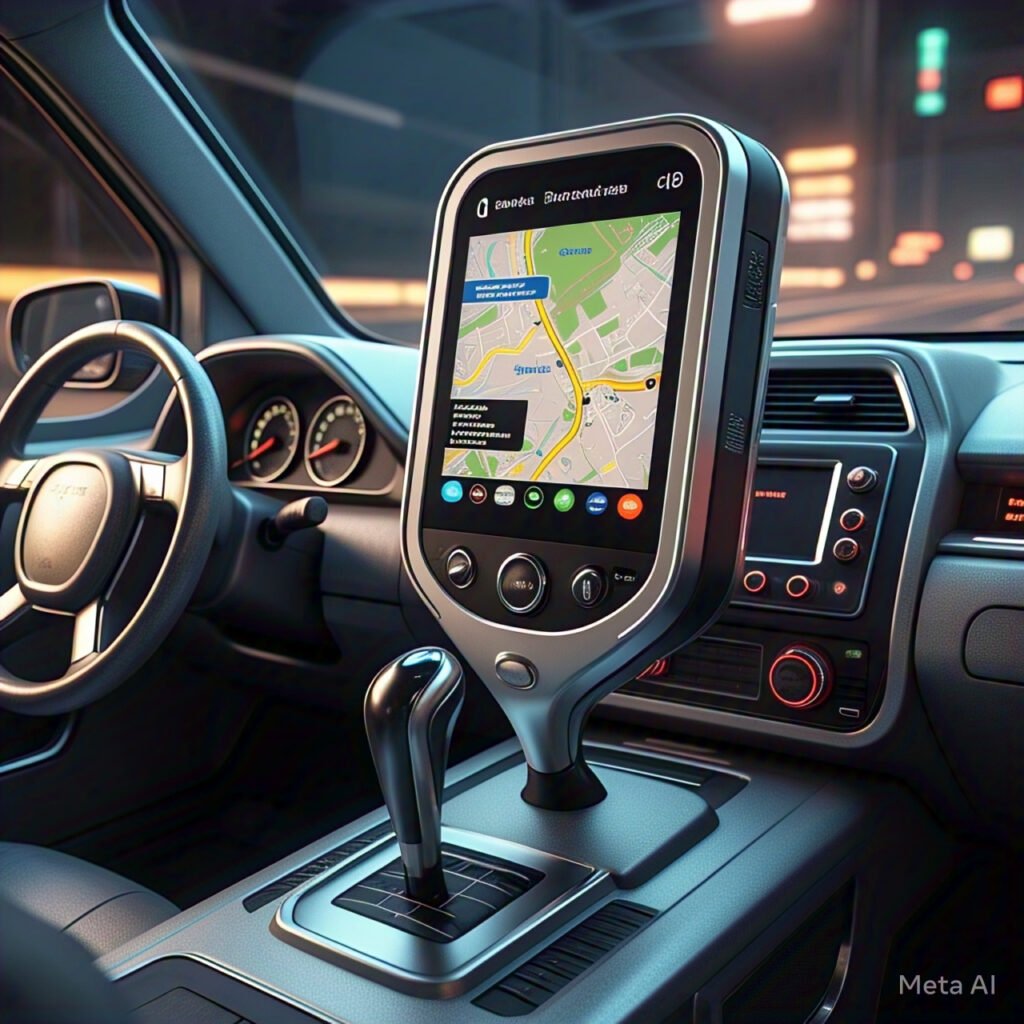AI-Powered GPS Systems: Intelligent Navigation for the Future
GPS technology has evolved a great deal since its discovery, and the incorporation of Artificial Intelligence (AI) has revolutionized navigation systems. Conventional GPS devices and applications have played a crucial role in giving directions, but with the integration of AI, these systems are becoming much smarter and more intelligent, providing an optimized and seamless navigation experience.
What is AI-Powered GPS?
Fundamentally, an AI-based GPS system relies on machine learning algorithms, data analysis, and real-time feedback to improve the navigation process. In contrast to conventional GPS systems, which adhere to pre-determined routes, AI-based systems learn and adapt to evolving conditions, including traffic flow, road closures, and even personal driver preferences. What this implies is that not only does the system offer turn-by-turn instructions, but it also anticipates the optimal route based on a vast array of dynamic factors.
Advantages of AI-Based GPS Systems
1. Dynamic Traffic Forecasts and Route Planning
Perhaps the biggest benefit of AI-based GPS systems is that they can process real-time traffic data and forecast traffic conditions. Conventional GPS systems use static maps, whereas AI-based systems use information from millions of cars, traffic sensors, and even past traffic patterns to give the fastest route in real-time. This assists drivers in beating traffic congestion, road mishaps, or construction sites and arriving at their destination faster.
For instance, AI could consider the day of the week, the hour of the day, and even the prevailing circumstances in the area to make projections on congestion. It may alert drivers of another route or signal them about upcoming delays even before they reach the congested part.
2. Personalized Driving Experience
AI-powered GPS systems don’t just follow a basic set of instructions; they learn from your driving habits over time. For example, the system can remember your most frequently traveled routes, your preferred driving speed, and your route preferences. This means that, over time, the AI becomes more attuned to your specific needs and preferences, offering a more personalized experience.
Also, the system can propose faster routes according to your individual driving behavior or suggest detours if it recognizes that you do not like to drive on highways or use tolls.
3. Context-Aware Suggestions
GPS systems powered by AI can customize themselves to your environment, depending on whether you drive for pleasure or business. For example, if the system finds that you’re driving through rush hours, it may indicate a scenic path so that your ride is better. Alternatively, if you are driving to get to a business meeting, the system may try to optimize it and recommend a shortcut.
Other systems even sync with other applications to consider the time you intend to spend at a particular place or when you want to make a stopover.
4. Real-Time Voice Assistance
With AI-enabled GPS, voice assistants are far more advanced. Voice recognition is much more powerful, allowing users to issue natural language commands like “find me the quickest way home” or “don’t take toll roads,” without memorizing specific wording. The system can recognize context and respond in real time with accurate, human-sounding results.
In addition to offering clear navigation instructions, AI-powered voice assistants can also provide updates on weather conditions, parking availability, and even suggest nearby restaurants, gas stations, or coffee shops based on your preferences or current location.
5. Predictive Maintenance Alerts
AI integration also doesn’t end at navigation. It also covers vehicle maintenance. With past data analyzed, AI-based GPS systems can send maintenance notifications, which forecast possible issues in line with patterns of use and driving history. This forecasing ability can alert drivers to impending issues before they become major, reducing unplanned breakdowns and expensive repairs.
For example, if the system realizes that a car’s tire pressure is falling due to driving patterns, it can recommend a stop at a gas station for an inspection before the problem gets worse.
How AI-Powered GPS Systems are Shaping the Future of Transportation
AI-powered GPS systems are making navigation smarter and more efficient. They’re not just providing directions—they are making driving safer, more enjoyable, and more convenient by anticipating needs and responding to real-time conditions.
The use of AI in GPS systems is also laying the ground for autonomous vehicles. With the increase in the prevalence of self-driving cars, navigation systems based on AI will become increasingly important to how the vehicles perceive and interact with the surroundings. They will be able to analyze traffic sign information, pedestrians, and other cars and create safe and efficient routes.
Additionally, GPS systems powered by AI will only keep improving and updating their algorithms, becoming more intelligent with each trip. As they collect more data, they will be capable of anticipating increasingly tailored driving experiences, responding to new challenges, traffic patterns, and user activity.
Conclusion
AI-based GPS navigation is transforming how we travel. Utilizing real-time information, machine learning, and tailored intelligence, these GPS systems provide a more intelligent, more streamlined driving experience. As the tech keeps getting better, we can anticipate even greater features, which will make our trips safer, faster, and more enjoyable. Whether it’s avoiding traffic, giving us personalized directions, or forecasting possible maintenance problems, AI is really revolutionizing the future of navigation.




